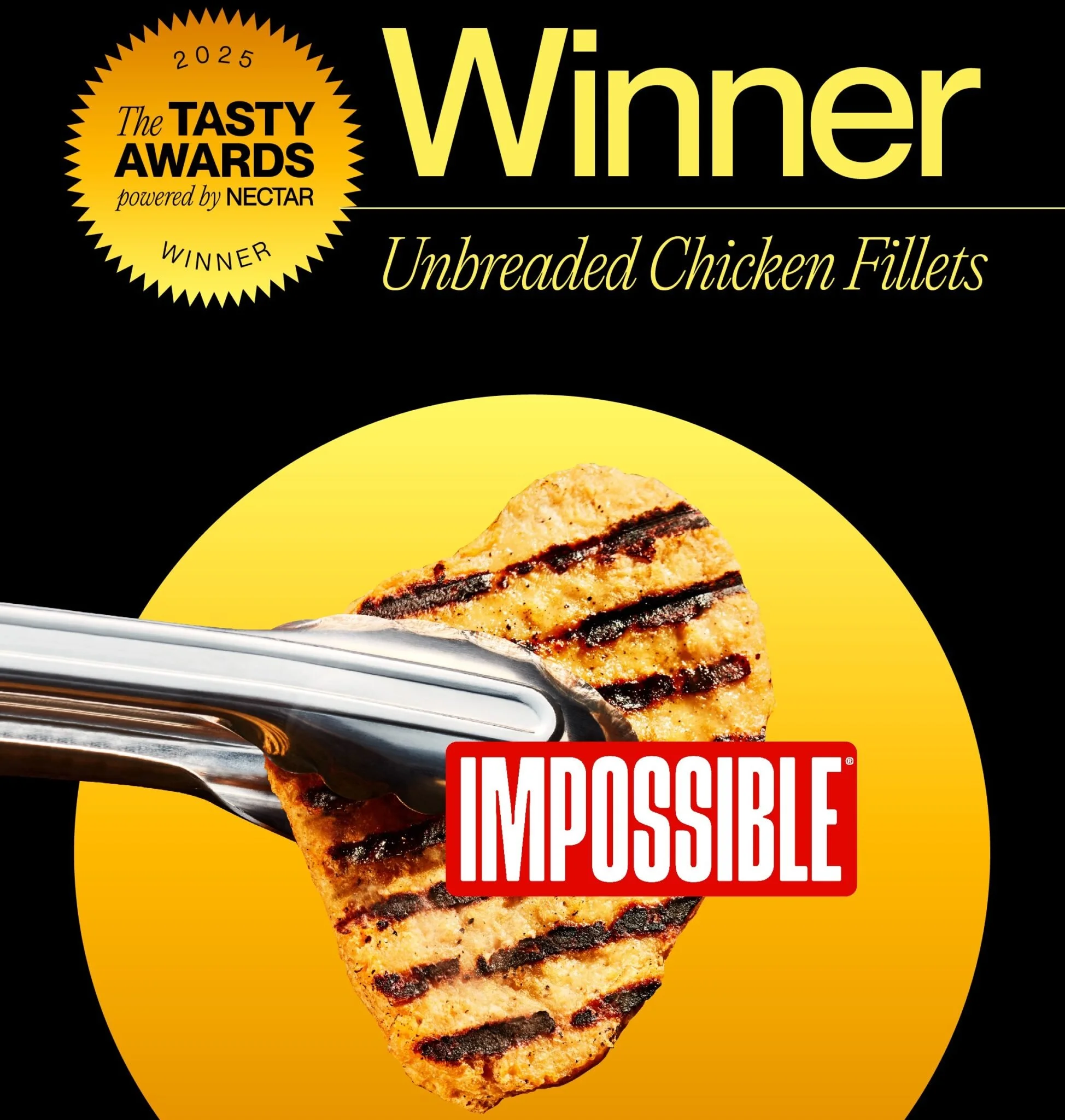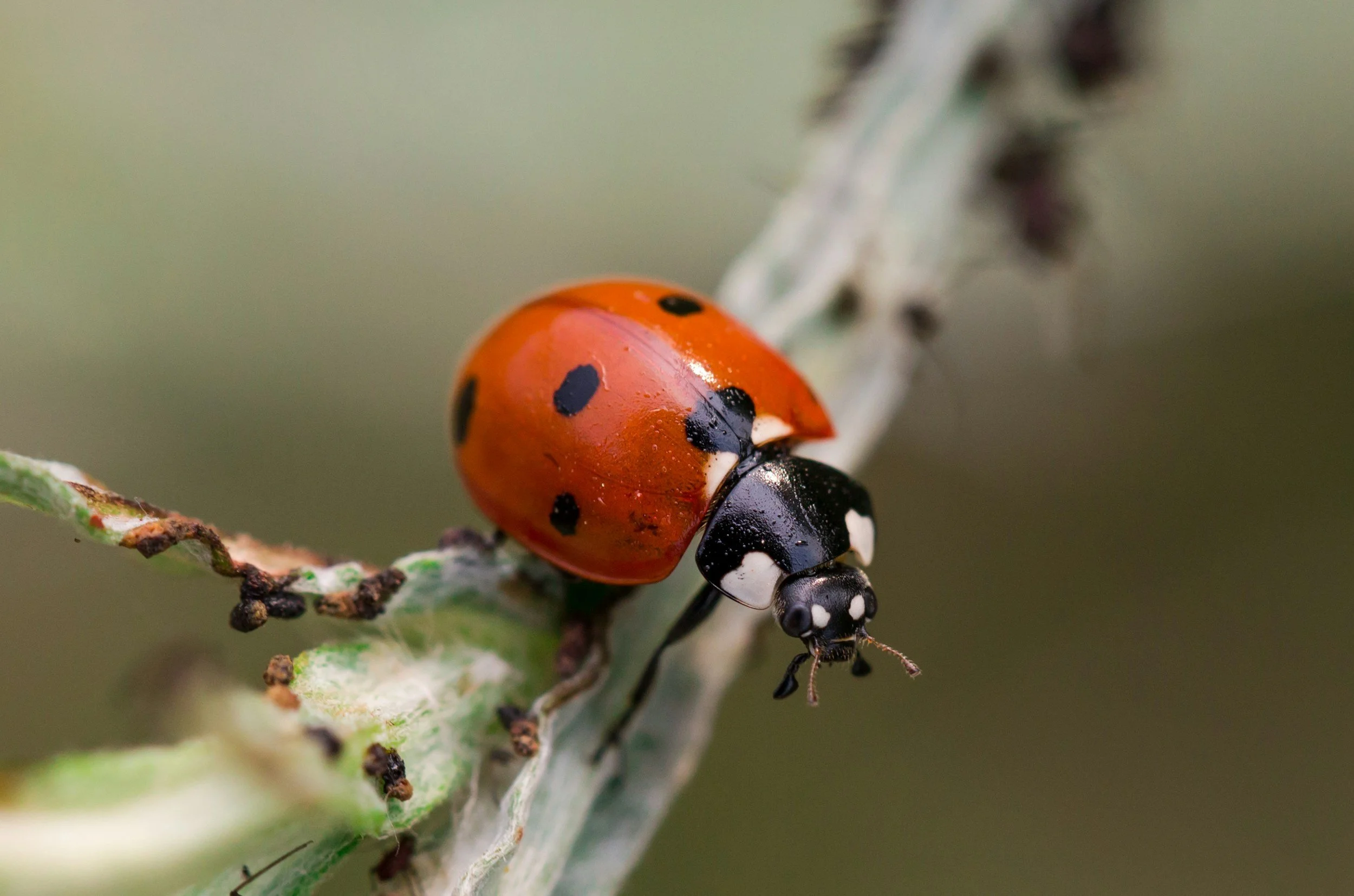Plant-based products can compete with meat - if they taste better, says new report
The study also launched the TASTY Awards, recognizing the top-rated alternative proteins that could change how we eat.
Photo: Impossible Foods
Better taste could be the key to increasing consumer acceptance of plant-based protein products, according to a new report.
Nectar, an Oakland-based initiative of the climate philanthropy group Food System Innovations (FSI), conducted what it calls the first large-scale taste test of its kind, surveying 2,684 self-identified omnivores and flexitarians in New York and San Francisco to evaluate and compare consumer responses to plant-based and animal-based proteins.
The study featured blind sensory analysis of 122 plant-based meat products, such as burgers, hot dogs, and bacon, across 14 categories, each compared against one animal protein “benchmark” product per category.
To provide an authentic and natural experience, participants were served plant-based and animal-based protein products at restaurants, according to the study. All food products were prepared according to each manufacturer's instructions without adding salt or seasonings, and each product was tested by at least 100 participants.
Without knowing which product they were eating, or whether it was made from plant-based or animal-based proteins, the participants rated them on a 7pt scale from ‘Dislike very much’ to ‘Like very much’ covering overall liking, flavor, texture, and appearance.
The study found that only 30% of participants rated the average plant-based product as “liked very much,” compared to 68% for animal-based products.
While animal-based items scored higher overall across the board, the analysis revealed significant variation in plant-based product quality. For 20 plant-based products, at least 50% of participants rated them as “the same” or “better than” their animal-based counterparts in overall liking. This suggests that plant-based options can meet or even surpass real meat when they reach a high enough standard.
The top four products nearing taste parity were Impossible Foods’ unbreaded chicken breast, chicken nuggets, and burger, along with Morningstar Farms’ nuggets. Across all 14 categories, 46% of participants said they ‘liked’ or ‘liked very much’ the leading vegan products.
Texture was identified as the key area needing improvement, while the analysis also showed that participants generally preferred the plant-based burgers, nuggets, and meatballs over the plant-based bacon or hot dogs.
“These leading products are outperforming average products primarily in flavour,” said Caroline Cotto, director of Nectar, the group behind the taste test. “Also, plant-based chicken as a category is winning in R&D over pork and beef, with no chicken products showing a big gap in liking between the average plant-based product and the leader product.
“Our research shows that the biggest opportunity for plant-based products to catch up to their animal counterparts is on texture. For some categories, like nuggets, burgers, turkey, etc, mimicking texture is significantly easier than for other categories, like bacon, bratwurst, and whole-cut steak,” Cotto continued.
“The balance of fattiness and chewiness in bacon, the snap of a bratwurst casing, and the tender but firm chew of whole-cut steak are all textural elements that require further R&D if plant-based products want to meet omnivore consumers’ expectations in these categories,” added Cotto.
Photo: Tofurky
Increasing plant-based protein sales
The World Bank ranks alternative proteins as having the second-highest greenhouse gas mitigation potential out of 26 agri-food interventions. But, despite the growing awareness of the environmental and health impacts of meat consumption, meat remains a staple in global diets.
After a period of rapid growth, plant-based meat sales have slowed, with figures falling from 2021 to 2023, according to the Good Food Institute, leaving the industry searching for ways to win back consumers.
“We’re looking at food as a key driver of decarbonization,” said Cotto. “Taste is the largest primary purchase criteria for consumers, and for these products to gain mainstream adoption, they have to taste good.”
Nectar’s study intends to provide real-world feedback about mainstream consumer preferences, to identify areas where plant-based meats can improve to better compete with their animal-based counterparts.
“Our comprehensive research confirms that taste remains a decisive factor in driving mainstream adoption of plant-based meats,” said Cotto. “By publicizing rigorous sensory data and recognizing exceptional products, we’re giving alternative protein innovators the roadmap they need to accelerate market adoption and meaningful climate impact.”
The TASTY Awards
Based on the findings of the study, Nectar has launched the TASTY Awards, a new annual awards program that elevates and celebrates the best-tasting alternative protein products.
Winners from the 2025 sensory panel are:
Chicken: Impossible Unbreaded Chicken Fillet, Vivera Plant-Based Chicken Breast, SWAP Food’s SWAP Chicken, Meati Classic Cutlet, The Vegetarian Butcher’s Impeckable Chicken Breast
Deli & cold Cuts: Tofurky Next-Gen Deli Slices (Roasted Turk’y), Prime Roots Cracked Pepper Turkey
Nuggets and prepared foods: Impossible Chicken Nuggets, MorningStar Farms Chik’n Nuggets, Impossible Meatballs, Impossible Hot Dog
Burgers and sausages: Impossible Burger, MorningStar Farms Steakhouse Style Burgers, Heura Burger, Beyond Meat Beyond Burger, Redefine Meat Redefine Premium Burgers
Breakfast meats: Impossible Sausage Patties, Gardein Ultimate Plant-Based Breakfast Saus’ge – Original
Other standouts: The Green Mountain Plant-Based Ham, The Vegetarian Butcher’s Hentastic Southern Fried Chicken
For more details on the study, visit NECTAR’s interactive Taste of the Industry 2025 dashboard.
We Have A Favor To Ask…
Species Unite amplifies well-researched solutions to some of the most abusive animal industries operating today.
At this crucial moment, with worldwide momentum for change building, it’s vital we share these animal-free solutions with the world - and we need your help.
We’re a nonprofit, and so to keep sharing these solutions, we’re relying on you - with your support, we can continue our essential work in growing a powerful community of animal advocates this year.






